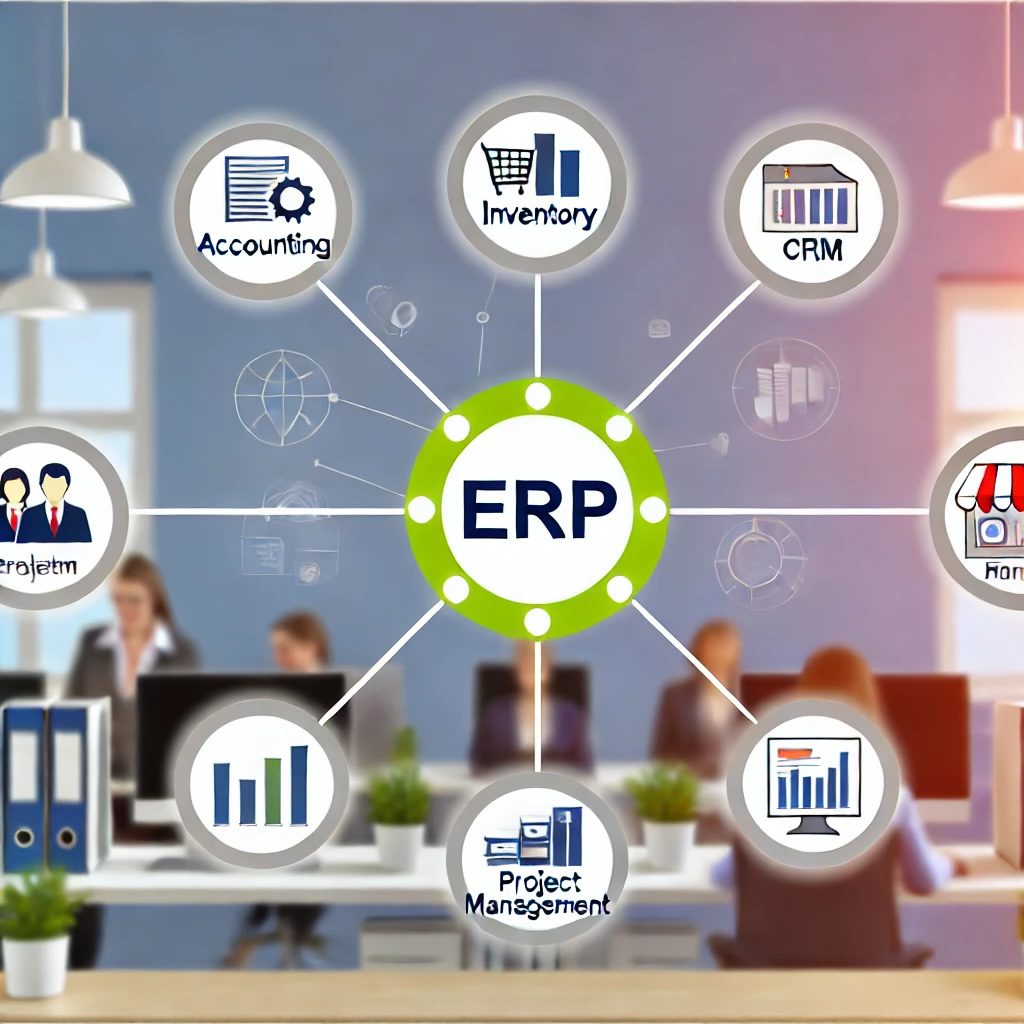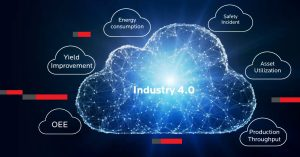The Ultimate Guide to Delaware ERP Systems
The Ultimate Guide to Delaware ERP Systems
Welcome to the ultimate guide to Delaware ERP Systems! If you’re a business owner or someone interested in streamlining operations and maximizing efficiency, you’ve come to the right place. ERP systems are essential tools for modern businesses, helping to integrate various processes and functions into one central platform. In this guide, we will explore the benefits of ERP systems, key features to look for, and how to choose the right one for your business in Delaware.
Overview of Delaware ERP System
Delaware ERP is a comprehensive system designed to streamline and automate various business processes within an organization. This integrated software solution covers all aspects of enterprise resource planning, including finance, human resources, supply chain management, and customer relationship management.
One of the key features of Delaware ERP is its ability to centralize data from different departments and provide real-time insights into the organization’s operations. By consolidating information into a single platform, employees can access accurate and up-to-date data to make informed decisions.
Delaware ERP offers modules tailored to specific needs, such as accounting, payroll, inventory management, and project management. These modules can be customized to align with the unique requirements of each business, ensuring maximum efficiency and productivity.
With Delaware ERP, organizations can improve collaboration among departments by fostering communication and sharing information seamlessly. This leads to enhanced coordination and synergy, ultimately resulting in more streamlined workflows and better overall performance.
Another advantage of Delaware ERP is its scalability, allowing businesses to adapt and grow without the need to invest in a new system. As companies expand, the ERP system can easily accommodate increased data volume and additional users, ensuring continued support for evolving business needs.
Delaware ERP also helps organizations comply with regulations and standards by providing tools for monitoring and reporting. This ensures that businesses remain in compliance with industry regulations and avoid costly penalties or legal issues.
Overall, Delaware ERP is a powerful tool that enables businesses to optimize their operations, improve efficiency, and drive growth. By centralizing data, automating processes, and fostering collaboration, organizations can achieve a competitive edge in today’s fast-paced business environment.
Benefits of Implementing Delaware ERP
Delaware ERP is a powerful tool that can streamline business processes, improve efficiency, and drive growth. There are numerous benefits to implementing Delaware ERP in your organization. Some of the key advantages include:
1. Improved Productivity: By centralizing data and automating manual processes, Delaware ERP helps employees work more efficiently. With real-time access to information and streamlined workflows, tasks can be completed faster and with fewer errors. This leads to increased productivity and allows employees to focus on more strategic initiatives.
2. Enhanced Decision-Making: Delaware ERP provides valuable insights into business operations through advanced reporting and analytics capabilities. By consolidating data from various departments and presenting it in a coherent manner, Delaware ERP enables management to make informed decisions based on accurate information. This helps organizations stay agile and responsive in an ever-changing business environment.
3. Cost Savings: Implementing Delaware ERP can lead to significant cost savings for organizations. By eliminating manual processes, reducing errors, and improving resource allocation, businesses can reduce operational costs and optimize their overall performance. Additionally, Delaware ERP can help identify areas of inefficiency and waste, allowing organizations to make data-driven decisions to improve profitability.
4. Scalability: Delaware ERP is designed to grow with your business. As your organization expands, Delaware ERP can easily accommodate increased data volume, users, and processes. This scalability ensures that your ERP system remains effective and efficient even as your business evolves and expands. Whether you are a small startup or a large enterprise, Delaware ERP can adapt to meet your needs.
5. Improved Customer Service: Delaware ERP enables organizations to provide better service to their customers. By gaining a 360-degree view of customer interactions, preferences, and history, businesses can tailor their offerings to meet customers’ needs more effectively. This personalized approach to customer service can lead to increased customer loyalty, satisfaction, and retention.
6. Regulatory Compliance: Delaware ERP helps organizations meet regulatory requirements by enforcing standard processes, maintaining accurate records, and providing audit trails. By automating compliance tasks and generating reports on demand, Delaware ERP ensures that businesses adhere to industry regulations and standards. This reduces the risk of fines, penalties, and legal issues associated with non-compliance.
Overall, implementing Delaware ERP can transform your organization by improving productivity, enhancing decision-making, reducing costs, supporting growth, enhancing customer service, and ensuring compliance. With its comprehensive features and benefits, Delaware ERP is a valuable investment for any business looking to streamline operations and drive success.
Features of Delaware ERP
Delaware ERP is a comprehensive software solution that offers a wide range of features to help businesses streamline their operations and improve efficiency. Some of the key features of Delaware ERP include:
1. Financial Management: Delaware ERP includes robust financial management tools that allow businesses to track expenses, revenues, and budgets with ease. The software also provides detailed financial reports and analytics to help businesses make informed financial decisions.
2. Inventory Management: With Delaware ERP, businesses can easily track their inventory levels, manage stock movements, and optimize inventory turnover. The software also allows businesses to set up automated reorder points and alerts to ensure they never run out of stock.
3. Customer Relationship Management: One of the standout features of Delaware ERP is its robust customer relationship management (CRM) capabilities. The software allows businesses to track customer interactions, manage leads and opportunities, and provide personalized customer service. Delaware ERP also includes marketing automation tools that help businesses create targeted marketing campaigns and track their effectiveness.
4. Supply Chain Management: Delaware ERP offers advanced supply chain management features that help businesses optimize their supply chain operations. The software allows businesses to track the movement of goods, manage vendor relationships, and optimize inventory levels to reduce costs and improve efficiency.
5. Human Resources Management: Delaware ERP includes comprehensive human resources management tools that help businesses manage their workforce more effectively. The software allows businesses to track employee attendance, manage payroll, and administer benefits. Delaware ERP also includes tools for performance management and employee training.
6. Business Intelligence: Delaware ERP offers powerful business intelligence tools that help businesses analyze their data and make informed decisions. The software includes customizable dashboards, reports, and analytics tools that provide businesses with valuable insights into their operations and performance.
7. Mobile Access: Delaware ERP is a cloud-based solution that can be accessed from anywhere, at any time, using a mobile device. This allows businesses to stay connected and manage their operations on the go, increasing productivity and efficiency.
In conclusion, Delaware ERP is a comprehensive software solution that offers a wide range of features to help businesses streamline their operations and improve efficiency. From financial management to customer relationship management to supply chain management, Delaware ERP has everything businesses need to succeed in today’s competitive market.
Case Studies of Organizations using Delaware ERP
Delaware ERP has been successfully implemented by various organizations across different industries, providing them with an integrated solution for their business processes. Here are some case studies of organizations that have benefited from using Delaware ERP:
1. Manufacturing Company: ABC Manufacturing, a global manufacturing company, implemented Delaware ERP to streamline their production processes and improve efficiency. By integrating their inventory management, production planning, and supply chain management into one system, ABC Manufacturing was able to reduce costs, optimize inventory levels, and increase productivity. With Delaware ERP, they were also able to gain real-time insights into their operations, allowing them to make data-driven decisions that improved overall business performance.
2. Retail Chain: XYZ Retail, a leading retail chain with multiple locations, chose Delaware ERP to centralize their sales, inventory, and customer data. By consolidating all their business processes into a single platform, XYZ Retail was able to improve communication between their stores, reduce stockouts, and enhance customer service. The real-time reporting and analytics provided by Delaware ERP also enabled them to identify trends and make strategic decisions to drive sales and increase profitability.
3. Financial Services Firm: DEF Finance, a financial services firm, integrated Delaware ERP to automate and streamline their financial operations. With Delaware ERP’s financial management module, DEF Finance was able to track expenses, manage budgets, and generate accurate financial reports. The system’s customizable features allowed them to tailor workflows to their specific requirements, improving process efficiency and compliance with regulatory standards.
4. Healthcare Provider: GHI Healthcare, a healthcare provider, implemented Delaware ERP to enhance patient care and operational efficiency. By integrating their clinical, financial, and administrative processes, GHI Healthcare was able to improve coordination among departments, reduce errors, and enhance patient outcomes. The system’s secure data management capabilities ensured compliance with healthcare regulations and safeguarded sensitive patient information.
In conclusion, these case studies demonstrate the diverse benefits that organizations can achieve by leveraging Delaware ERP. Whether it is streamlining manufacturing processes, centralizing retail operations, automating financial functions, or enhancing healthcare services, Delaware ERP provides a comprehensive solution to optimize business performance and drive growth.
Future Trends in Delaware ERP Technology
As technology continues to advance, the future of Delaware ERP is set to bring about significant changes and improvements to the way businesses operate. Here are some of the key trends to look out for in the coming years:
1. Cloud-based ERP Systems: One of the most prominent trends in Delaware ERP technology is the shift towards cloud-based systems. Cloud ERP offers businesses greater flexibility, scalability, and cost-effectiveness compared to traditional on-premise systems. With the ability to access data and applications from anywhere at any time, cloud ERP systems are becoming increasingly popular among Delaware businesses.
2. AI and Machine Learning Integration: Artificial intelligence and machine learning are set to play a crucial role in the future of Delaware ERP technology. By leveraging these technologies, ERP systems can automate routine tasks, analyze data more effectively, and provide valuable insights to help businesses make better decisions. From predictive analytics to intelligent automation, AI and machine learning integration are expected to revolutionize the way businesses use ERP systems.
3. Mobile ERP Solutions: With the rise of remote work and mobile technology, mobile ERP solutions are becoming essential for Delaware businesses. Mobile ERP applications allow employees to access important data and applications from their smartphones or tablets, enabling greater flexibility and productivity. Businesses that embrace mobile ERP solutions will have a competitive edge in the future.
4. Integration with IoT Devices: The Internet of Things (IoT) is another trend that is shaping the future of Delaware ERP technology. By integrating ERP systems with IoT devices such as sensors, wearables, and smart devices, businesses can collect real-time data and improve operational efficiency. IoT integration allows for better inventory management, predictive maintenance, and enhanced customer experiences.
5. Enhanced Data Security and Privacy: With the increasing threats of cyber attacks and data breaches, data security and privacy will continue to be a top priority for Delaware ERP technology. In the future, ERP systems will need to incorporate advanced security features such as encryption, multi-factor authentication, and secure data storage to protect sensitive information. Compliance with data protection regulations such as GDPR will also be crucial for Delaware businesses.
In conclusion, the future of Delaware ERP technology is filled with exciting possibilities. From cloud-based systems to AI integration, businesses can expect significant advancements that will enhance efficiency, productivity, and competitiveness. By staying abreast of these trends and embracing the latest technologies, Delaware businesses can future-proof their operations and stay ahead of the curve.
Total words: 429







